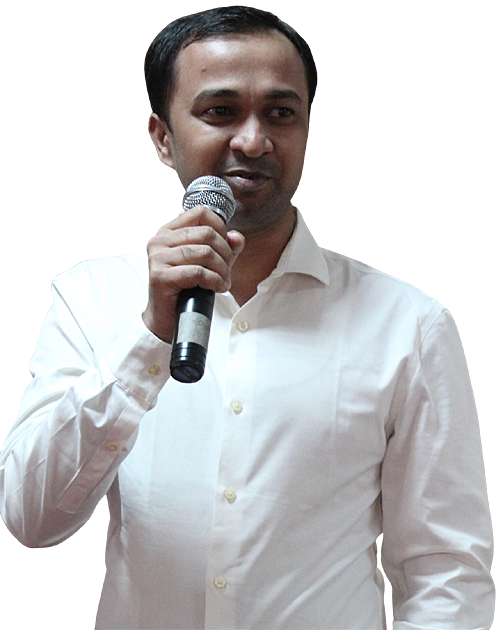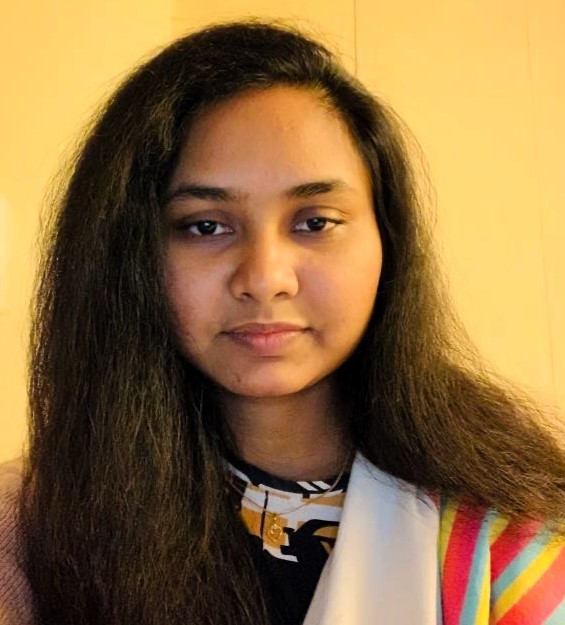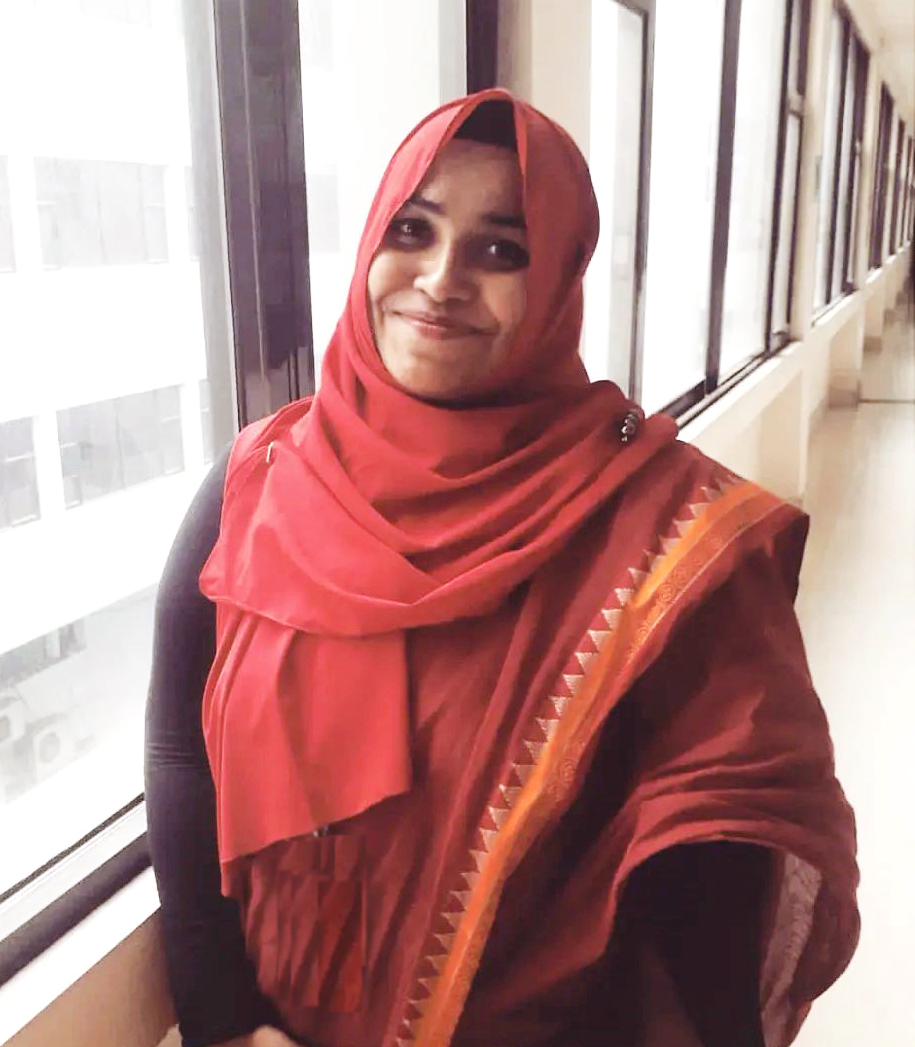
U S Rokeya Akhter, PhD
Executive Director
Dr. Rokeya Akhter has been at the forefront of transformative change as the Executive Director of SAIST since 2020, combining her expertise with a role as a National Individual Consultant and Gender Specialist for the SACP Project under the Ministry of Agriculture & IFAD. Her academic journey is marked by a PhD from the University of Dhaka in 2017, following her earlier achievements of a BSS and MSS in Sociology from the same university in 1996 and 1997, respectively. Dr. Akhter's research contributions are both profound and diverse. Her work, including the notable publication "Culture of Arbitrariness in Madrassa" in the SAJSS, reflects her commitment to critical social issues. She has been pivotal in conducting impactful studies, such as the need assessment for SBCC strategy for Nutrition Specific Behaviour Changes in 2019 and coordinating research for the LEAN Project's Baseline study.
Her international presence was highlighted when she presented her research on the rise of agro-industry at the Annual Conference of the Association for South Asian Studies in Toronto, Canada, in 2017. Dr. Akhter has also guided baseline studies for the safety of women and girls in urban areas under Action Aid Bangladesh and contributed to electoral governance research with The Asia Foundation. Dr. Akhter's dedication extends to participating in various professional development programs, enhancing her expertise in nutrition-sensitive training, food security classification, electoral governance, and leadership. Her involvement with international and local bodies, including the Association for Asian Studies and the International Sociological Association, underscores her commitment to societal advancement and gender equality. Dr. Akhter's journey is a testament to her relentless pursuit of knowledge, empowerment, and advocacy, making her a distinguished figure in academic and professional circles.
Show More

Juwel Rana, MPH (Dual)
Founder & Director
Mr. Juwel Rana is the Founder and serves as the Director of Research and Innovation at the SAIST Foundation. His inspiring journey began during his undergraduate studies at the University of Dhaka, where he laid the groundwork for the SAIST Foundation. Initially taking shape as YRIDB and SAYRID on 15 July 2010, this endeavor was fueled by the passion and collaboration of a dedicated group of young researchers. Together, they set out to make a significant impact, showcasing the power of youthful ambition and collective effort in driving positive change. He has pursued a dual
Master of Public Health (MPH) degree in European Master of Public Health (EMPH)
from the University of Sheffield, the UK, and EMPH in Environmental and
Occupational Health Sciences from the EHESP School of Public Health, France,
under the prestigious Erasmus Mundus Scholarship. He also completed an MSS and
BSS in Sociology from the University of Dhaka, Bangladesh. Before joining the
Department of Public Health at North South University, Mr. Juwel worked as a J1 Research Scholar at the Department of Biostatistics and Epidemiology at the
University of Massachusetts Amherst, USA.
Mr. Juwel Rana’s major scientific interests
are to develop or improve epidemiologic methods related to risk prediction,
repeated measures, multivariate analysis, causal mediation analysis, causal
inference, mixture analysis, simulation study, big data, and application of
machine learning approaches. He applies these techniques in perinatal
epidemiology (early childhood development, developmental delays and disorders,
child mortality), maternal & reproductive health, non-communicable
diseases, and environmental epidemiology.
He published more than 60 research papers in peer-reviewed journals such as The Lancet, The Lancet Public Health, Neuroepidemiology, Journal of Epidemiology and Community Health, Alzheimer & Dementia, Scientific Reports, International Journal of Environmental Research, Exposure and Health, Reproductive Health, BMC Medicine, Frontiers in Medicine, and Journal of the American College of Cardiology. He serves as the managing editor of the South Asian Journal of Social Sciences (SAJSS), regional editor of Global Dialogue, and member of the reviewer board in respective journals of the field, including the International Journal of Environmental Research, Scientific Reports, BMJ Environmental & Occupational Medicine, Public Health Nutrition, Brain and Behavior, and PLOS One. He is an active member of different professional networks, such as The Society for Epidemiologic Research and the International Society for Environmental Epidemiology.
Research Profile: PubMed ORCiD Google Scholar ResearchGate
Publications (Selected)
Show More

Md Shahin Aktar, MSc
IT and Data Manager
Shahin Aktar is the IT and Data Manager at SAIST Foundation. He joined the SAIST Foundation in 2016 as a research assistant and worked on many research projects. He oversaw the research team's making of questionnaires, data collection, literature review, sampling, and arranging research-related intensive courses, workshops, seminars, and discursive dialogues, among other things. Shahin Akhtar acquired his BSS and MSS in Sociology from Dhaka International University in 2015 and 2016, respectively, and he completed a course on Research Methodology from the Center for Advanced Research in Social Science, University of Dhaka. He is a member of the Regional Editor (Bangladesh) of Global Dialogue, A Quarterly Magazine of the International Sociological Association (ISA).
He opted to pursue a career in information technology because he has had a great interest in programming since childhood. He began studying software programming and earned a postgraduate Enterprise Systems Analysis & Design diploma using C# under the IsDB-BISEW IT Scholarship. In addition, he completed a professional course in relational database management systems (RDMS), and under the Skills for Employment Investment Program (SEIP), he completed another professional course in BIG DATA, DATA ANALYTICS, AND DATA SCIENCE. Before joining Nextel Communication as a full-struck software developer, he applied for the Microsoft Certification Exam and successfully passed the most challenging exam with a score of 944 out of 1000 marks. He obtained the prestigious Microsoft Certified Solution Developer (MCSD) Certificate. He completed his M.Sc. in Computer Science with a major in Software Engineering at the University of South Asia and pursued an M.Sc. in Applied Statistics and Data Science at Jahangirnagar University. Moreover, he likes to go to new places, has done a lot of cultural exchange programs, and is a mountaineer.
Show More

Md Masud Rana
Field Research Assistant
Md. Masud Rana is a BSc Engineer in Electrical Engineering from Stamford University, Bangladesh. His professional journey is marked by a commitment to leveraging his expertise for meaningful contributions in the field. At SAIST, as a Field Research Assistant, Masud has applied his knowledge to support critical research to understand and mitigate environmental pollution exposures. His work has significantly contributed to advancing environmental engineering practices, particularly in addressing pollution challenges.
Beyond his research role, Masud has played a pivotal role in implementing STEM education programs at SAIST, utilizing experimental and play-based pedagogy to inspire primary and secondary school children about STEM subjects. This innovative approach has not only fostered a deeper understanding and enthusiasm for science, technology, engineering, and mathematics among young learners but also highlights Masud's dedication to educational excellence and his ability to make engineering principles accessible and engaging to the next generation.
As an esteemed Institution of Engineers, Bangladesh (IEB) member, his insights and expertise have furthered the development of engineering practices within Bangladesh. Masud's work exemplifies a profound commitment to enhancing engineering and research communities through his practical research and educational initiatives, underlining his invaluable contributions to the field.
Show More
Mohesh Roy
Field Research Assistant
Mohesh Roy is a dedicated Field Research Assistant at the SAIST Foundation, where he applies his extensive knowledge in economics to contribute to field research projects. Mohesh pursued his Bachelor's and Master's degrees in Economics from the University of Chittagong, a prestigious institution recognized for its academic excellence. At the SAIST Foundation, Mohesh is involved in conducting comprehensive field research, data collection, and analysis, focusing on the economic aspects of various development projects. His work plays a crucial role in informing policy recommendations, program design, and implementation strategies. His expertise in economics, combined with his practical experience in field research, makes him an invaluable asset to the SAIST Foundation and its mission to foster sustainable development through evidence-based research and policy advocacy.
Show More

Toufica Sultana, MSS
Director, Knowledge Dissemination
Toufica Sultana co-founded the South Asian Institute for Social Transformation (SAIST) and has made significant contributions as a lecturer (currently on leave) at the GED Cell, Eastern University, Dhaka, Bangladesh. She has enriched her academic and teaching portfolio by serving as adjunct faculty at prestigious institutions such as North South University and City University, where she taught various courses, including Introduction to Sociology, Bangladesh Studies, Sustainable Development, and Environment and World Civilization, starting in 2016. Her teaching journey also includes a stint as a teaching assistant in the Department of Sociology at the University of Saskatchewan.
Beginning her professional career as a staff researcher at the Research and Evaluation Division (RED) of BRAC, Toufica has always been passionate about research. Her dedication is evident through her involvement in quantitative and qualitative research projects in collaboration with renowned institutions like Toronto Metropolitan University, McGill University, University of Saskatchewan, and SAIST. Currently, she focuses on research exploring the impact of maternal education and labor market policies on child supervision in low- and middle-income countries (LMICs), as well as the utilization of mental health services among Canadians.
Research Profile: ResearchGate GoogleScholar
Show More

Jakera Rahman
Operations Associate
Jakera Rahman is a dedicated and proficient team member of SAIST who is currently serving as an Operations Associate. She is steadfastly committed to advancing knowledge and fosters collaborations across diverse disciplines to address intricate challenges. Her
proficiencies encompass program execution, team leadership, data collection,
communication, literature analysis, financial management, and adeptness in statistical software. These competencies enable her to
significantly contribute to program implementation, data acquisition, human
resources, financial oversight, and report composition. Her professional journey
commenced as a Research Assistant engaged in the project titled
"Effectiveness and Scalability of Programs for Children who are Out of
School and At Risk of Dropping Out in Nepal, Bhutan, and Bangladesh," funded by IDRC and GPE-KIX with SAIST Foundation. She operated at the grassroots level in this capacity, actively overseeing
data-gathering initiatives, liaising with stakeholders, executing programs
within urban slum environments, and crafting comprehensive financial reports.
Show More

Ridwana Nahrin
Research Coordinator
Ridwana Nahrin is enhancing the research and innovation landscape at SAIST as the Coordinator of Research & Innovation. In this role, she actively performs and monitors project-related activities while supervising the team to foster organizational development. Her professional journey is marked by a rich tapestry of experiences across academia, research, and program sectors. Ridwana embarked on her career journey as a Nutrition Officer at the Rohingya Camp under Save the Children International, where she gained invaluable hands-on experience working at the grassroots level. Further enriching her career, she contributed to the Career Development Center at her alma mater, the Asian University for Women (AUW).
Her foray into the research domain commenced with her involvement in Early Childhood Development and Maternal Mental Health programs at the BRAC Institute of Educational Development (BRAC IED). Seeking to deepen her expertise in the public health arena, she later joined the Maternal and Child Health Division (MCHD) of icddr,b. Ridwana's academic foundation in public health was laid at the Asian University for Women (AUW), where she completed her bachelor's degree in 2018. She is furthering her education by pursuing a Master’s in Public Health (MPH) at North South University, Dhaka. Driven by a profound commitment to community service through rigorous research, Ridwana aspires to specialize in Epidemiology, with a keen research interest in Maternal and Child Health Epidemiology.
Show More

Helal Uddin
Director, Education and Training
Helal Uddin is the Director of Education and Training at the SAIST Foundation. Mr. Helal also serves as a Senior Lecturer in the Sociology Department at East West University, Bangladesh. He holds an Erasmus Mundus Master's in Public Health in Disasters jointly offered by Karolinska Institutet, Sweden, and the University of Oviedo, Spain. He also earned his BSS and MSS in Sociology from the University of Dhaka. Before joining East West University, he served as a Lecturer of Sociology at Eastern University, Bangladesh.
Before joining at East-West University, he held the esteemed position of Assistant Director of Research and Innovation at the South Asia Institute for Social Transformation (SAIST). His strong translation skills rewarded him with the position of Regional Editor of Global Dialogue, a quarterly magazine of the International Sociological Association (ISA). His research interests focus on social determinants of health, childhood adversity, and child and adult health.
Research Profile: ResearchGate GoogleScholar ORCID
Show More

